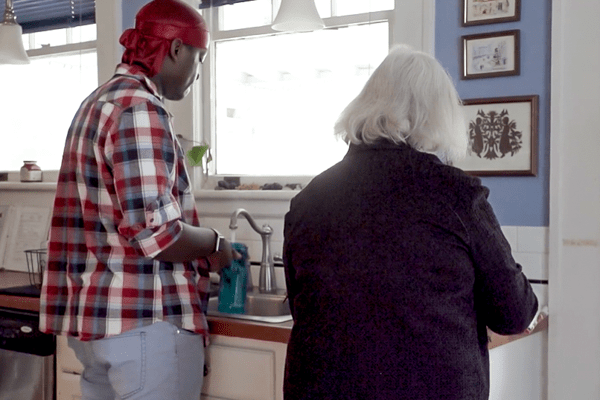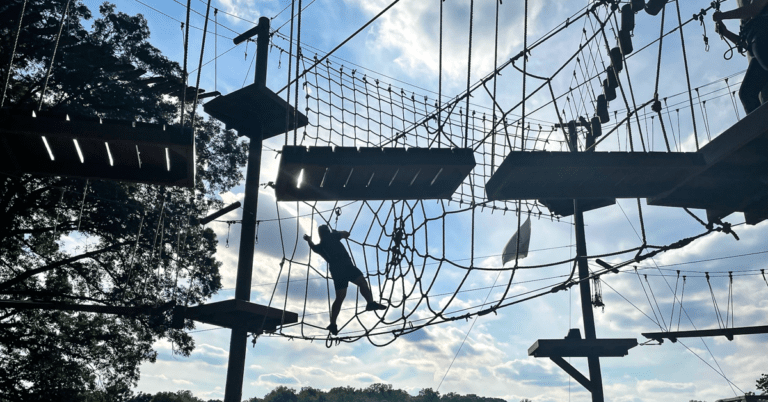At first glance, aging out of foster care appears to be a welcome relief for foster youth. Often, children come into foster care under stressful situations. And the assumption is their trauma continues the longer they stay in the foster care system, away from their parents and family. Unfortunately, a number of foster youth are never able to reunite with their families, essentially leaving them alone in the world. These youth leaving the foster care system—whether they eagerly await it or not—face more challenges than their peers. They become further traumatized and hurdles hinder their long-term success.
Aging Out
Many will simply “age out” of the system when they are 18 (by choice) or 21 (by law). They do so without a family and without the skills to make it on their own. In fact, more than 23,000 youth age out of the US foster care system each year. They are unable to reunite with their families or find permanence with adoptive families. And they are simply to old to remain in the system.
Many obstacles face these youth. They are more likely than their peers to be homeless. More likely to face drug dependency. There is an increased chance of experiencing teenage pregnancy. They are much more likely to become jobless or incarcerated. After reaching the age of 18, 20% of foster youth will become instantly homeless.
Helping Youth Find Home
Quite often, youth who are “aging out” are promised a safe home where they can have a family or learn to become independent. But are we making promises to youth that we cannot keep given these stark statistics?
At Crossnore, we’re helping to build the skills that lead to independence so our youth can realistically face the “real world” on their own. Since late 2021, several of our foster youth have shifted into our Youth Independent Living program (YIL). We offer a continuum of care so that youth can grow and spread their wings. We are also proud to surround them with a cohort of supportive adults.
Practical Ways to Help Youth Aging Out of Foster Care
One of our youth entered our YIL program in March of 2021 and in February of 2022 moved from a group living house into her own on-campus studio apartment. Our youth are able to move at their own pace, while still receiving case management and clinical services. They also learn, over time, the responsibilities of paying bills on time and maintaining an apartment.
In very simple and practical ways, we can all help youth in foster care transition into adulthood safely. Thus improving their chances of achieving long-term success. Think about the things we all needed at that age. Each of us can teach and model fundamental skills. Things like effective interpersonal communication, conflict resolution, responsible banking, applying for a job, workplace etiquette, establishing credit, and leasing an apartment. Just to name a few.
Life Skills Reimagined
In February of 2022, Crossnore launched the Life Skills Reimagined curriculum for all youth 14 and older. Life Skills Reimagined (LSR) is an innovative, online life skills curriculum designed specifically for learners with emotional trauma. LSR is self-paced, evidence-informed for all learning types with a holistic approach.
Our youth move through the curriculum with guidance from their Residential Advisors. They also receive in-person processing and role playing. There are currently 40 students enrolled in the program and working through the content. We anticipate some students completing the program by the end of the summer. The LSR program has been incorporated in our agency’s Student Work Program. It will help students prepare for current and future employment.
Open Table
Earlier this year, Crossnore partnered with The Open Table, a unique mutual support model with trained volunteers identified as “table members.” Table members commit to meeting once a week with the identified youth for one year to provide support and guidance. These “table members” help them develop and implement their own life plan. And members assist by tapping into their own social networks.
One of our Crossnore youth currently enrolled with the Open Tables mentorship program has been involved with the program since March of 2022. He expressed his appreciation for the adult interactions and mentorship. Being around people who are genuinely interested in helping him navigate his next steps into independence gives him confidence. Discussions about his impending transition to independence allow him to reflect and prepare adequately.
The group also participates in social outings where they bowl and have meals and fellowship. Overall, this YIL youth reports the program being extremely beneficial for his social well-being. He expressed his interest in continued participation with the Open Table, even after his exit from Crossnore.
Wonderful Foster Parents
But non-profit organizations are not the only way. In fact, most of the preparation and dedication to becoming responsible and productive young adults comes from our wonderful foster parents. Take for example the Hall family, now retired after fostering for 17 years. They were known for their work with older youth approaching the milestone of adulthood and independence. The Hall’s were determined to teach the youth in their home functional life skills.

They gave them a $25 dinner budget to feed a family of six. The couple took youth to visit their local bank to open a checking account. They helped them budget and pay utility bills, stressing the importance of good credit. They helped youth in filling out apartment rental applications and planning a vacation. Mrs. Hall made it clear that part of their role modeling included community work and acts of kindness. Mrs. Hall used to say, “We have four years to cram in life for you so put on your roller skates. We need you to understand the world before you leave our home.”
Supporting Youth as a Community Member
Don’t worry, if you are not a foster parent or don’t work within the child welfare system, there are plenty of ways to connect with and support our youth. There are often numerous volunteer or mentorship opportunities at local organizations. Even less formal, try connecting with youth in your community or church who need direction and/or positive role models to prepare them for the immediate path forward. Help them as they study for college entry tests, adapt to college life, apply for jobs, prepare for job interviews, or open lines of credit and banking accounts. Sometimes just spending time with someone and/or their family can be beneficial for youth, so they can see a healthy family and learn what it is like to build healthy relationships.
All of this is to say youth need supportive, consistent, and compassionate adults to meet them where they are (emotionally and psychologically) and guide them to a path forward, living independently and responsibly. We have learned a lot since the relaunch of the Crossnore YIL program – the future of our youth keeps us motivated to fill the gaps and to grow healthy futures. These practical ways to to help youth aging out of foster care can help you get involved too.
If you have questions or want to learn more about Youth Independent Living, visit www.crossnore.org/yil.



